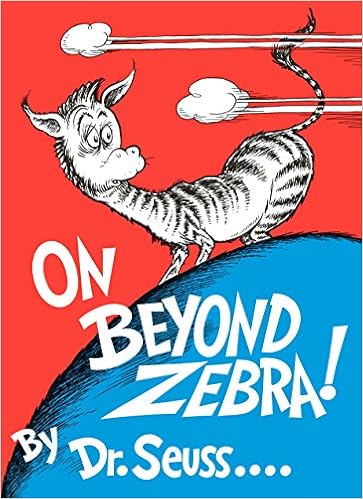
Seuss Enterprises, the company that controls the author's books and characters. The decision to stop publishing and licensing the books follows a review by a panel of educators and other experts, according to Dr. Seuss Enterprises will cease publishing six of the author's books - including And to Think That I Saw It on Mulberry Street and If I Ran the Zoo - saying they "portray people in ways that are hurtful and wrong." The books have been criticized for how they depict Asian and Black people. Seuss, is seen here in his La Jolla, Calif., home.ĭr. Seuss Enterprises is pulling six of the author's books, saying they "portray people in ways that are hurtful and wrong." Theodor Seuss Geisel, who wrote children's books as Dr. The authoritative record of NPR’s programming is the audio record.Dr. This text may not be in its final form and may be updated or revised in the future. NPR transcripts are created on a rush deadline by an NPR contractor. Visit our website terms of use and permissions pages at for further information. (SOUNDBITE OF LITTLE PEOPLE'S "START SHOOTIN'")Ĭopyright © 2021 NPR. Some of them, Martin predicts, will stand the test of time. ULABY: There are plenty of Seuss books in circulation. Why do we have to keep recycling ones that are damaging? MARTIN: Are there some things that just need to be retired? There's so many stories in the world. As he grew to reflect on the racism in his books, she says it would have been consistent for Dr. Theodor Geisel, who was himself tormented as a child for being German during World War I, did not want any kid to feel bullied. ULABY: Children of the 2020s, Martin points out, can reach for beautiful books by writers from lots of different backgrounds. MARTIN: Kids were bored out of their minds with, like, "Dick And Jane" and those basal readers that I grew up - I'm a child of the '60s. He was writing against the stiff, humorless children's literature of his day. Martin says Theodor Geisel wanted his books for kids to feel resonant, contemporary. MARTIN: I'm sure they will have a long life in archives and art exhibits. Seuss would've been absolutely fine with taking his racist books for kids out of circulation. Seuss evolved, especially after World War II, when he helped create propaganda that demonized Japanese people.

Martin teaches children's literature at the University of Washington. MICHELLE MARTIN: Seuss was not thinking about Black kids and Asian kids when he was writing these books.
OFFENSIVE IMAGES IN ON BEYOND ZEBRA SKIN
ULABY: So Seuss changed the character's skin color and called him a Chinese man, making it slightly less racist. Seuss himself reexamined sometime in the 1980s the figure described as a Chinaman colored in yellow. Seuss, came to regret it.ĭONALD PEASE: Dr. Donald Pease is a professor who holds a position named for Theodor Geisel at Dartmouth College. ULABY: That reading aired on NPR in 2004. UNIDENTIFIED PERSON: Suppose that I add a Chinese man who eats with sticks. ULABY: In that 1937 book, a little boy describes all the weird things he says he's seen on the street. UNIDENTIFIED PERSON: And to think that I saw it on Mulberry Street. The book "On Beyond Zebra!" is not exactly "The Cat In The Hat." All of the books contain racist caricatures.

NEDA ULABY, BYLINE: Most of the six books in question are pretty obscure. And as NPR's Neda Ulaby reports, an early critic of racism in the books was Dr. Seuss will no longer be published was greeted today with applause and outrage.


 0 kommentar(er)
0 kommentar(er)
